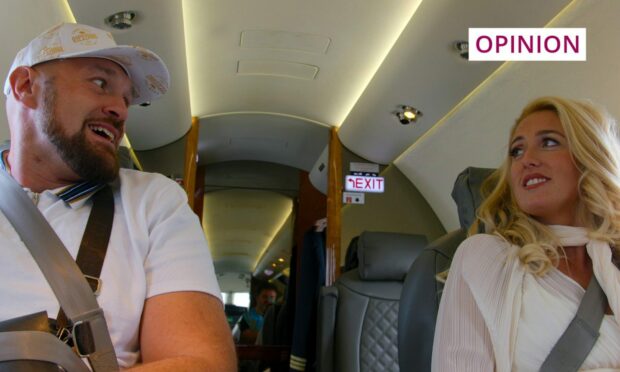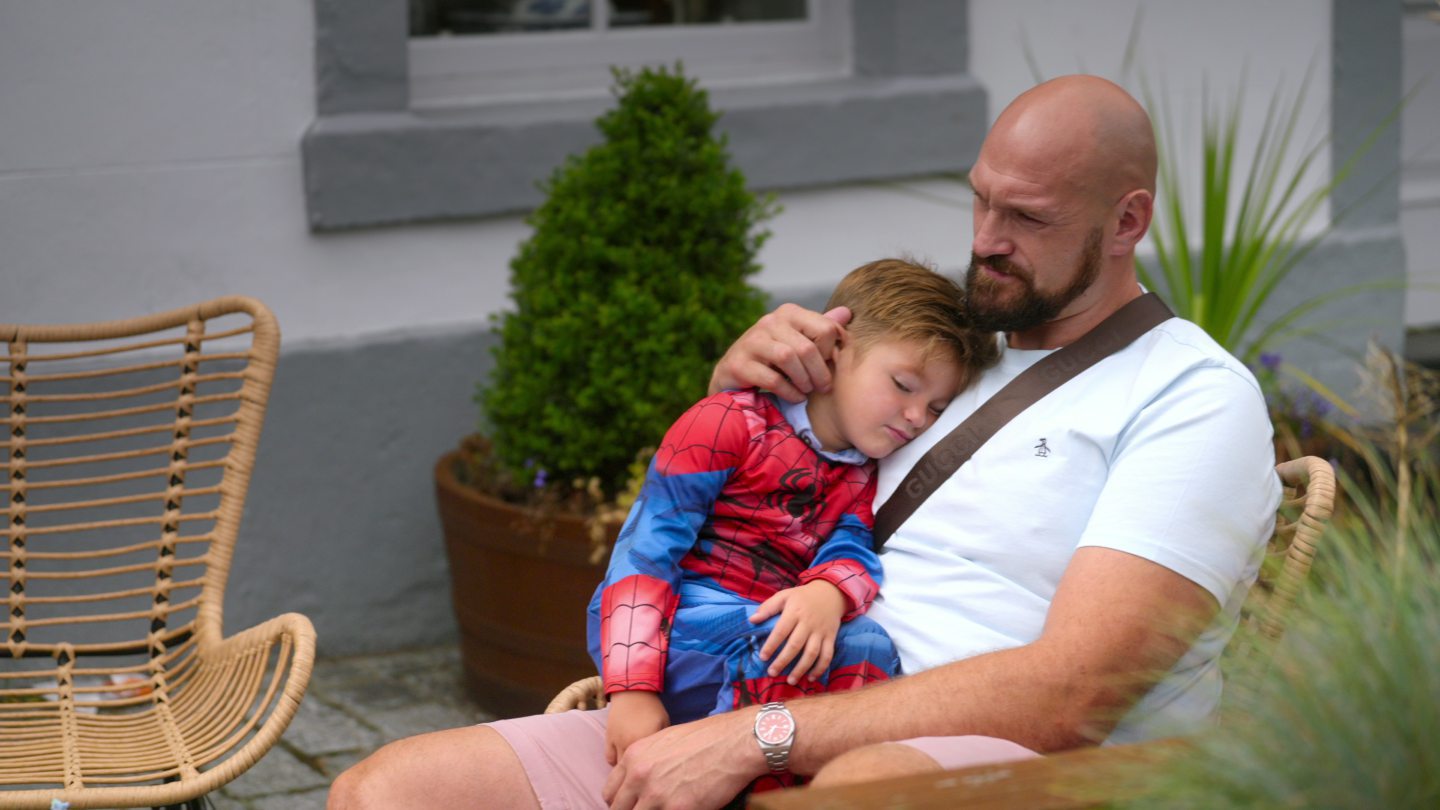Unwell this week, I opted for the best medicine: a healthy dose of televisual escapism.
You know the sort of thing I’m talking about: a pale cream McMansion with a Rolls-Royce in the driveway, inside a chaotic but loving family living the high life in head-to-toe Versace. The matriarch swanning around a vast, hideously-designed kitchen with her hair in huge rollers, while the husband talks about “half a billion” business deals and a teen with Rolex dangling from their slim wrists sulks in the corner.
Was I watching the Kardashians? Maybe the Real Housewives? Was this Miami or California? Nope, the sweeping coast scenes were of Morecambe and I was watching, like much of Britain, At Home With The Furys.
In case you’re unfamiliar with the show, still currently number two in the UK Netflix ratings, At Home With The Furys follows the journey of Tyson Fury (AKA The Gypsy King, AKA the world heavyweight champion) and his family as they navigate his rocky retirement from the boxing industry.
Unlike most people in the country, I knew absolutely nothing about Tyson Fury or his family before I started watching. I can quote every line from the Rocky franchise (yes, even the one with the robot butler), but that’s as far as my interest in boxing goes. I had no idea, and was happy to learn, that there had been such an esteemed athlete from the traveller community, or that the Furys, when they might have been anywhere, chose to live in the modest seaside town of Morecambe – though admittedly in a slightly-less-modest £1.8 million house.
I imagine, except for boxing fans, that most people started watching the reality show, framed as a sort of British Kardashians, for the same reason I did. We’ll see a glimpse of how the other half live with unlimited money, we’ll watch them spend and earn and learn that no matter how much money, Botox or bling you possess, there are still family curveballs and falling-outs, disappointments and triumphs to contend with. Really these shows say: they’re just like us, but in Gucci loafers.
Reflective of the world I grew up in
While Tyson Fury certainly qualifies as the “other half” these days (in 2022, he was number 18 on Forbes magazine’s list of the world’s highest paid athletes) I found the programme addictive – not for the showiness of wealth, but for the echoes of poverty. Because it was reflective of the world I grew up in.
I did not grow up in a traveller family, but I did grow up in a seaside town in a working-class community. There were moments in the TV show that were deeply touching and familiar to me. When mum of six kids, Paris, was begging her toddler to eat another few nuggets, when she told another of the “Princes” (all the sons share this moniker) that they can buy crayons cheaper in Asda, and when Tyson Fury explained that if you can save £100, you should, while taking his own bags to the dump.
I felt this most of all while watching their teenage daughter, Venezuela, having her nails done while her brothers trained with their dad in the boxing gym, being told by her mum that she can do anything she wants after having been taken out of school at 11, as is traveller tradition.
I know what it feels like to be that girl. On one hand, you’re being told implicitly that your conventional attractiveness to society and men is the most valuable thing you possess; on the other, you’re also being told you should aspire to more. I know the tussle of those two differing perspectives. Venezuela might have her own OK! Magazine spread and a collection of designer bags, but it’s clear money can’t buy you emancipation.
Representation matters
I did see some progress, however. Fury has ADHD, bipolar disorder and depression, and he’s been very open about his struggles, both before the show and during it. In my working-class communities, men – especially “hard men” – very rarely spoke about their mental health, instead medicating with booze and bust-ups.
Though it occasionally made for distressing viewing and jarred with the slick fly-on-the-wall-of-rich-folk format, I commend him and the rest of his family for being so honest about his condition and how it impacts the family, no doubt helping others to speak up and seek help.
The Furys, for all their many flaws, are representing the traveller community and the working-class community in the best way they can
Ultimately, it wasn’t the private jets or the second proposal with the ring the size of a Mini Egg or even the bizarrely anti-climatic finale fight that made At Home With The Furys so compelling for me. It was seeing complicated families, for better or worse, like the ones I grew up in and alongside.
Representation matters, and the Furys, for all their many flaws, are representing the traveller community and the working-class community in the best way they can.
Oh, one last thing – can someone give Paris a medal? Tyson might be taking the punches in the ring, but it’s Paris who is doing all the legwork the rest of the time for that family. She deserves a spot on her very own Forbes list, or at least a big, shiny belt to hold above her head.
Kerry Hudson is an Aberdeen-born, award-winning writer of novels, memoirs and screenplays

